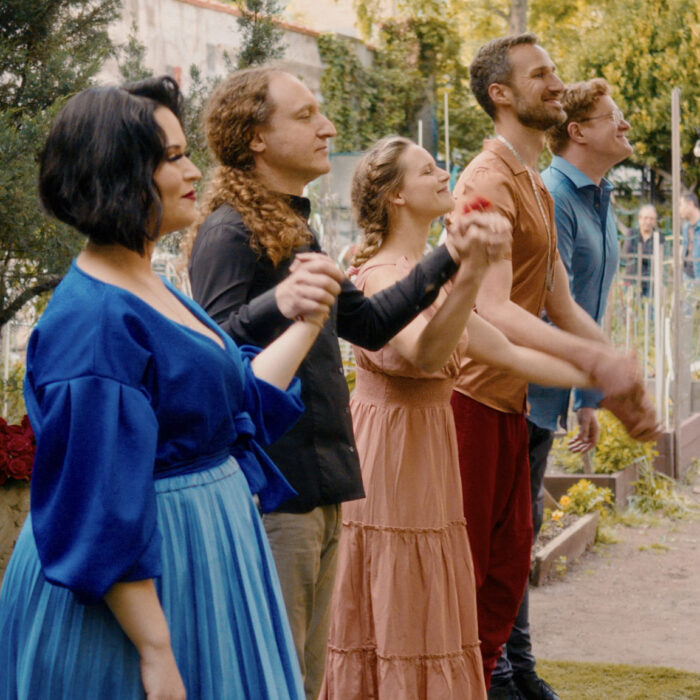
Opera Meets Film: How ‘Diamantino’s’ Use of Wagner / Purcell Unifies & Underscores a Budding (B)Romance
By David Salazar“Opera Meets Film” is a feature dedicated to exploring the way that opera has been employed in cinema. We will select a section or a film in its entirety, highlighting the impact that utilizing the operatic form or sections from an opera can alter our perception of a film that we are viewing. This week’s installment features “Diamantino.”
A Cristiano Ronaldo-esque superstar misses the game-tying penalty in the World Cup Final, loses his father, and spirals out of control. His twin sisters then get him involved with a shady company’s genetic cloning experiments while a government agent infiltrates his home as his “adopted” son.
Yes, the plot of “Diamantino” is all over the place, but the film doesn’t hide behind this. It embraces its zaniness from the off, never relinquishing the tonal opening of its social critique.
It’s no surprise that the film, with its grand emotional gestures, would include opera excerpts. But like the rest of the film, there is a fluidity and exactness with the inclusion.
We have three opera excerpts in the film and they all center around the relationship between Aisha and Diamantino.
For some background – Diamantino decides to adopt a refugee after the death of his father. Aisha, who is investigating the soccer star for potential money laundering, is disguised as a boy called Rahim and subsequently adopted by Diamantino. Their relationship gets off to a great start and in a montage depicting their early friendship, we hear the Vorspiel from “Das Rheingold.” The music builds and builds over the images of fun times between the two, emphasizing a sense of increased connection. As the music builds, the audience is meant to feel that these two are truly building up their relationship.
Of course, as with everything in the film, there is also a deep sense of irony. The grandiosity of the film’s music is juxtaposed with the simplest of activities. The two run by the beach, swim in the water, and duel with toy swords. There’s a real sense of a “bromance” taking place, though, given the circumstances that Rahim is really Aisha, one also gets a feeling that the toy swords also underscore a sexual tension between the two.
Speaking of which, the next major progression in their relationship is underlined by Dido’s Lament with Diamantino remarking that he was about to engage in an awkward situation that would lead to heartbreak for him. As he runs off with his “son” Rahim on his yacht, the two engage in sexual intimacy, the music from Purcell’s opera taking over the scene. Again, we get a montage between the two and the music’s accentuated “Remember Me” underlines the fact that this is the soccer star’s first sexual encounter and that ironically, he can never forget it. He will always remember it. The tragic strains of the music give the moment a bittersweet quality, but the singing romanticizes the intensity of the relationship.
Opera returns one last time to punctuate the film’s grand finale – yet another montage between Diamantino and Aisha, this time embracing their love with no pretenses or lies. The music meant that underlines this is the finale to Wagner’s “Parsifal.” Here, Wagner’s music gives off a sense of freedom and transcendence that mirrors the “Rheingold” montage, the dueling swords by the beach transformed into love’s sweet embrace, the waves washing over them.
While the relationship between Aisha and Diamantino develops over several other scenes, the choice here to unite the major beats with operatic montages gives the relationship a strong sense of structural unity, allowing the audience moments to connect on a deeper emotional level with the growing bond between the two.
Categories
Opera Meets Film

